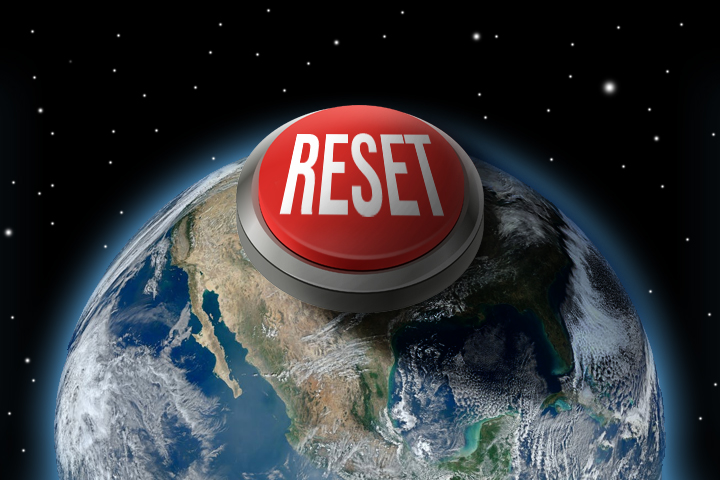World Economic Forum 2021: Circular economy and “The Great Reset”

Subscriptions are high on the agenda of the World Economic Forum, as part of their strategy for a Great Reset of global capitalism. How will subscriptions be integral to a circular economy? And will not owning anything really make everyone happy?
At the end of January, world leaders, industry figures and thinkers met for the World Economic Forum’s annual Davos conference – albeit virtually this year.
Their priority now is the shape of post-COVID recovery, and how the disruption the world has endured over the last 12 months can be harnessed to reconfigure the global economy, reduce inequality, and stave off the worst of environmental collapse. The key to this, they argue, is “The Great Reset,” a radical vision of a transformed global economic order, and they see 2021 as the best time to implement it.
The WEF sees the circular economy as crucial to this new way of doing things, and the subscription business model as a major piece of it, being both environmentally sustainable and exceptionally resilient in the face of economic strife. Though much of the circular economy spotlight has been on responsible resourcing of raw materials and recycling, as-a-service business models are increasingly considered to be a vital component.
As-a-service business models as part of a sharing economy could be worth an estimated £18 billion in the UK by 2025, giving customers access to higher quality goods and services without high barriers to entry or the responsibility of upkeep and maintenance. Businesses, meanwhile, will be incentivised to keep refurbished products in use for longer periods.
The Ellen MacArthur Foundation has long espoused the circular economy, particularly when it comes to material-intensive products such as clothes and appliances, as a model with “the ability to reduce consumption while preserving consumers’ access.” In a 2012 analysis, it was found that a washing machine company switching to an as-a-service model could save customers a third per wash cycle, with the manufacturer earning a third more. It also would save huge amounts of materials and carbon emissions, totalling $520-630 billion a year in the EU by 2030.
Philips, for example, has turned its lightbulbs into a service, selling its business customers a certain number of lumens while offering maintenance and upgrades; this model reduces energy use by 55%, and expedites the recovery and recycling process at the end of the lightbulb’s lifetime.
Cyclon, a subscription service for recyclable activewear, sends subscribers sportswear, and then receives them back at the end of their lifecycle in exchange for the latest version. Once the used item is returned, it will be fully recycled, with the materials going back into creating new gear.
But these businesses are small potatoes compared to what the WEF’s futurists have envisioned – a future where citizens “don’t own anything” at all, as proposed in an editorial penned in 2016 by Ida Auken, Young Global Leader for the WEF and Denmark’s then-Minister for the Environment, which continues:
“I don't own a car. I don't own a house. I don't own any appliances or any clothes… It might seem odd to you, but it makes perfect sense for us in this city. Everything you considered a product, has now become a service…
"They live different kind of lives outside of the city. Some have formed little self-supplying communities. Others just stayed in the empty and abandoned houses in small 19th century villages…
"Once in a while I get annoyed about the fact that I have no real privacy. No where I can go and not be registered.”
This radical vision for the future has, however, not delighted everyone.
In fact, some consumers don’t like the idea of not owning anything at all, transforming them into serfs held hostage by access to goods and services they would have once owned outright.
Some critics argue that these policies are being pushed on ordinary consumers by an “elitist” WEF that, in reality, does little to meaningfully steer the course of global capital – other than provide certain public figures and companies the opportunity for some reputation laundering – merely paying lip service to reducing inequality and improving the environment.
As for the vaunted benefits, currently, the subscription market is, according to research, largely not delivering on the environmental promise that many hope for. What’s more, data protection rules unable to keep up with the pace of the market may come to hamper a circular economy, having to be either sacrificed in the name of environmental protection – or serving as a barrier to any meaningful change.
On the more extreme end, detractors have thrown the Great Reset into the swirling set of conspiracies surrounding the COVID-19 pandemic and political fallout of 2020, dubbing the Great Reset a nefarious plan to “completely destroy the global capitalist economy and reform the western world.” The ascent of Joe Biden to the White House has only served to boost this narrative.
A further WEF conference will take place in Lucerne, Switzerland in May, with The Great Reset high on the agenda once again. Lofty global agendas aside, the attention is on subscription businesses and their power to overhaul the status quo into the 2020s and beyond – provided they avoid slipping into tyranny.
Ensure your business is future-ready with Cerillion Skyline powering your subscription billing operations
